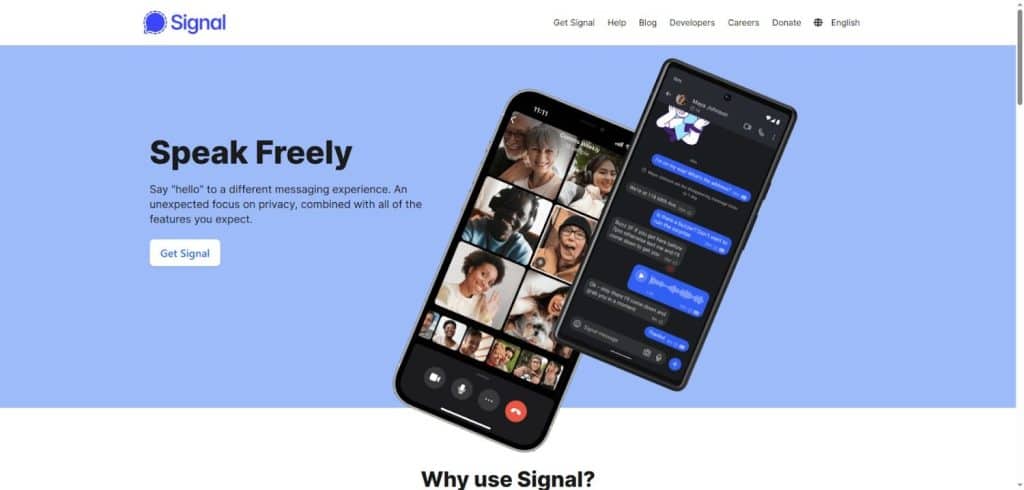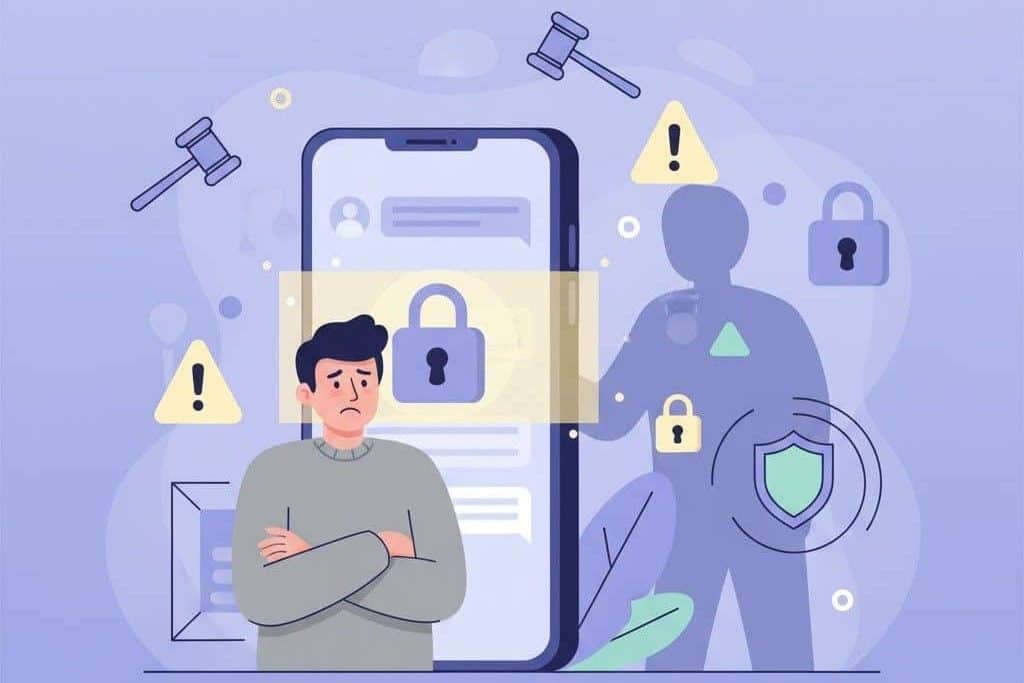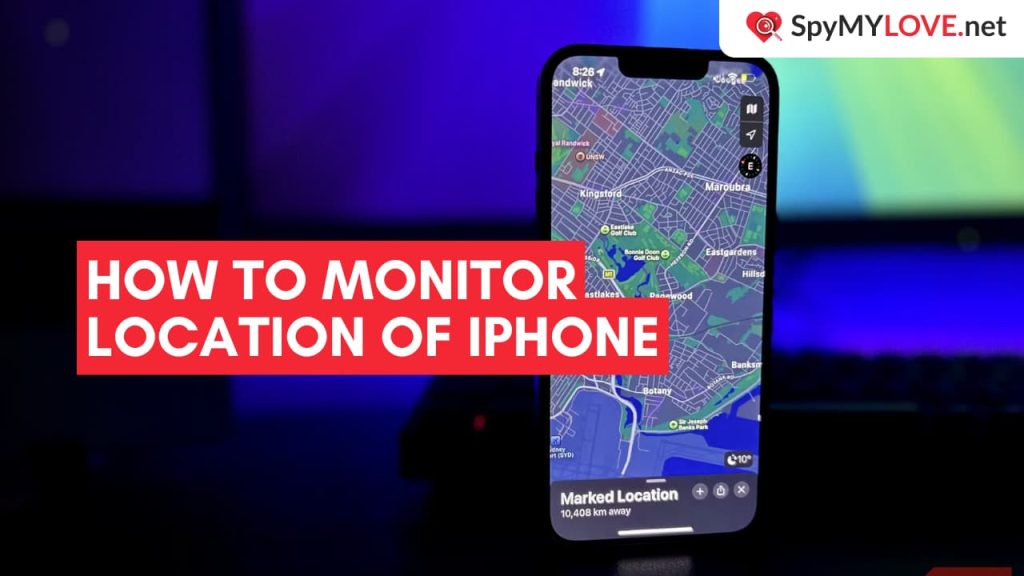Ashley Madison, followed by Victoria Milan and AdultFriendFinder, are still the most well-known apps for secret affairs in 2026.
The way people cheat has changed a lot. Now, cheaters use special dating sites and private messaging apps that keep everything secret, which means it is really difficult to catch them.
But don’t worry, this article shows you how these apps work, what they do, and what warning signs to watch for if you’re worried about your partner.
Disclaimer: We’re helping you understand the tools people use for cheating and not to spy on anyone. Remember, checking someone’s phone without permission can be illegal.
Nothing here is meant to encourage cheating or illegal phone access.
Top 10 Cheating Apps & Affair Platforms (2026)- Quick Overview
There are some of the most popular apps and websites people use for affairs in 2026. Each one has special features that help users stay hidden and meet people secretly instead of using regular dating apps.
| App/Platform | Primary Purpose | Works on | Rating |
|---|---|---|---|
| Ashley Madison | Married dating & affairs | Android/iPhone | 4.1 |
| Victoria Milan | Discreet relationships | iPhone | 4.0 |
| AdultFriendFinder | Casual hookups | Web/Android/iOS | 4.0 |
| BeNaughty | Quick meetups | Android | 4.0 |
| Gleeden | Extramarital dating | Android/iPhone | 4.2 |
| Seeking | Arrangement-based relationships | Android | 3.8 |
| Secret Benefits | Private encounters | iPhone | 5.0 |
| Pure | Anonymous hookups | Android/iPhone | 2.4 |
| Feeld | Alternative relationships | Android/iPhone | 3.7 |
| Signal | Encrypted messaging | Android/iPhone/Mac/Windows/Linux | 2.3 |
Note: Ratings are compiled from Play Store, App Store, and Trustpilot reviews as of October 2025.
Each of these platforms works differently and helps people keep their affairs secret in different ways. Some are better for quick hookups, others for long-term secret relationships.
Below, we’ll look at each app in more detail.
Also note that all the traffic (number of visits) data is taken from SimilarWeb.
1. Ashley Madison
| Relationship types | Affairs, discreet encounters, casual dates |
| Number of visits | 12.76M |
| Type of audience | Married people looking for affairs |
| Unique features | Panic button, traveling man feature, priority messaging |
Ashley Madison is the biggest and most famous affair website in the world. You can browse without showing your real name or face. Most people who use it are married and looking for affairs.

More than 80 million people have signed up since 2002, and hundreds of thousands join every month. After hackers attacked the site in 2015, they made security much stronger.
Many users say small conversations often turn into emotional infidelity, especially when they start opening up to someone online more than their own partner.
The site works in many countries and has lots of active users in big cities. Available as one of the top Cheating Apps for iPhone and Android devices, it provides cross-platform accessibility for discreet connections.

Reddit user beingthebestmetoday said Ashley Madison helped them connect discreetly without any issues, showing how the platform effectively supports private relationships for users seeking affairs.
Key Features
- Blurs your photos so people can’t recognize you.
- Priority Man makes your messages show up first.
- Share private photos only with people you choose.
- Traveling feature helps you find people when you travel.
- Payment methods that don’t show on bank statements.
2. Victoria Milan
| Relationship types | Affairs, married dating, discreet relationships |
| Number of visits | 0.9723M |
| Type of audience | Married people in Europe and North America |
| Unique features | Panic button, anonymous blur, affair guarantee |
Victoria Milan started in Europe, but now lots of Americans use it too. The best feature is the “panic button.” If someone walks in, you click it, and your browser jumps to a safe website like news or weather.

The platform also receives strong customer support feedback. Trustpilot reviewer Rachelle Nabaasa rated it 5 stars, noting the team communicated clearly, understood her request, and delivered as promised, indicating dependable assistance for discreet users.

You can browse without anyone knowing you looked at their profile. Over 49 million people use it, mostly in France, Italy, Spain, and Scandinavia. More and more people in India are using it now, too.
Key Features
- The panic button instantly switches to a safe website.
- Anonymous blur hides your face in photos automatically.
- A private key lets you control who sees your photos.
- Translates messages if you talk to people from other countries.
- Affair guarantee gives your money back if you don’t find someone.
3. AdultFriendFinder
| Relationship types | Hookups, casual sex, adult encounters |
| Number of visits | 27.68M |
| Type of audience | Adults looking for sex with no strings attached |
| Unique features | Live video streams, adult chat rooms, photo contests |
AdultFriendFinder is all about sex, not romance or relationships. You can video chat with people and send private messages to meet up quickly. Unlike other adult sites, this one has lots of naked pictures and adult videos.

People who want physical intimacy without commitment use this site. It’s popular in the United States, the United Kingdom, and Australia.
But many therapists warn that infidelity often leads to deep trust issues and emotional pain, which is why some people turn to platforms like this instead of fixing problems in their relationship.
While some free cheating apps offer limited features, AdultFriendFinder requires paid membership for full access to its adult-oriented functions.

Unlike other adult sites, the platform features abundant explicit content. However, Reddit user Existing_Passion_938 pointed out that AdultFriendFinder functions more like a pornography site than a genuine affair platform, making it less reliable for users seeking authentic connections.
Key Features
- Live webcam shows from other members.
- Instant messaging to set up meetings fast.
- Search filters to find exactly what you want.
- Private photo albums you share with specific people.
- Adult content sharing and viewing.
4. BeNaughty
| Relationship types | Casual dating, quick hookups, flirting |
| Number of visits | 8.345M |
| Type of audience | Singles and attached people looking for casual fun |
| Unique features | Like gallery, promote account feature, wink function |
BeNaughty makes everything simple. You swipe, wink, and message without filling out long profiles. Signing up takes just minutes, and you can start browsing immediately. About 40,000 new people join every week.

Trustpilot reviewer Leona Rodriguez rated BeNaughty 5 stars, calling it fun, safe, and free from scams while also praising the platform’s clear pricing, suggesting a smoother and more transparent experience than many casual hookup apps.

The app is fast and easy, which makes it popular for people who want quick, secret meetups. As one of the most commonly searched Cheating Apps for Android, BeNaughty attracts users looking for cheating apps online because it’s easy to set up.
Key Features
- Quick sign-up that doesn’t ask many questions.
- Like a gallery to look through profiles fast.
- Flirtcast sends the same message to many people at once.
- Safe mode filters out fake accounts.
- Video chat to make sure people are real.
5. Gleeden
| Relationship types | Affairs, extramarital relationships, discreet dating |
| Number of visits | 6.882M |
| Type of audience | Married women and men, mostly in Europe and Asia |
| Unique features | Female-led platform, photo blur, anonymous credits |
Gleeden is different because it is led by women. It started in France and is very popular in India, where affairs are a sensitive topic.

Women use the platform for free, while men buy credits to chat. Photos stay blurred, names are hidden, and everything feels private. This makes it easy for secret relationships to grow and slowly break the trust between partners.

Reddit user Exotic-Lambo expressed that users of extramarital affair platforms like Gleeden deserve negative consequences, reflecting the moral criticism and social stigma commonly directed at people who use such services for infidelity.
Key Features
- Women use it totally free.
- Photos are automatically blurred to hide your face.
- Payment is anonymous, so it doesn’t show on your credit card.
- Private photo albums you control who sees.
- The panic button closes the app instantly.
6. Seeking
| Relationship types | Sugar dating, arrangements, mutually beneficial relationships |
| Number of visits | 22.90M |
| Type of audience | Sugar daddies, sugar babies, people looking for arrangements |
| Unique features | Income verification, private photo albums, background checks |
Seeking (used to be called SeekingArrangement) is for relationships where money is involved. It’s not just for affairs, but many married people use it to find secret sugar relationships.

It has a feature to hide photos and only show them to certain people. Privacy filters let you block people from your city or hide your profile from certain groups. Professionals who want to keep things secret use this app a lot.

However, recent user feedback shows mixed experiences. One Trustpilot reviewer, Karolien Termonia, criticized the platform’s new verification system, overly edited profiles, and the influx of low-effort users, calling it “a no-go” for her.
Key Features
- Private mode hides your profile from searches.
- Background checks to verify who people are.
- Income verification to prove how much money you make.
- Advanced filters to find exactly who you want.
- Priority messaging so your messages get seen first.
7. Secret Benefits
| Relationship types | Sugar dating, arrangements, discreet meetups |
| Number of visits | 23.06M |
| Type of audience | Sugar daddies and sugar babies looking for money arrangements |
| Unique features | Anonymous galleries, private messaging, and a credit system |
Secret Benefits works like Seeking but focuses more on keeping everything private and anonymous.
You can chat privately without giving out personal details. Anonymous galleries let you share photos without putting them on your public profile.

This app is for people who want to meet secretly and where money is part of the relationship. You buy credits to send messages, which some users say helps reduce bots, but others still complain about fake profiles.

Still, Reddit user Ok_Buffalo_6848 reported that many profiles seem automated, designed to exhaust credits, with very few real connections, making it challenging to find genuine matches.
Key Features
- The credit system controls how much messaging costs.
- Anonymous photo galleries protect your identity at first.
- Private chat rooms for secret conversations.
- Search filters to find specific types of arrangements.
- The mobile app makes it easy to use anywhere.
8. Pure
| Relationship types | Anonymous hookups, one-time encounters |
| Number of visits | 1.482M |
| Type of audience | Adults looking for immediate, anonymous sex |
| Unique features | Self-destructing chats, no profile retention, one-hour requests |
Pure doesn’t have regular dating profiles at all. You post a “request” that disappears after one hour. Your chats automatically delete after the hour ends or when you disconnect. History, profile info, old conversations, nothing stays saved.

This complete deletion makes Pure perfect for secret cheating apps because there’s almost no evidence left behind. How well it works depends a lot on where you live.
However, not all experiences are positive. Some users report frustrations with the platform’s paywall and authenticity.

Still, experiences vary. Trustpilot reviewer Come_At_Me_Bro called Pure “a scam,” highlighting frustrations with paywalled features and accounts that appear to be bots, which can make finding genuine connections difficult.
Key Features
- One-hour requests that disappear quickly.
- Chats delete automatically, so there’s no proof.
- No profile creation or information saved.
- Photo verification to reduce fake profiles.
- Location matching helps you meet people nearby fast.
9. Feeld
| Relationship types | Open relationships, polyamory, alternative dating, affairs |
| Number of visits | 1.798M |
| Type of audience | Couples, singles exploring non-monogamy, & affair seekers |
| Unique features | Couples’ profiles, incognito mode, extensive preference options |
Feeld was made for polyamorous people and open relationships, but now lots of people having affairs use it too. You can make a couple’s profile where both partners browse together, or you can make a secret single profile.

Incognito mode stops your profile from showing up to your Facebook friends, which solves a big problem.
You can choose from many different types of relationships you’re looking for, which makes it useful for people wanting specific things outside their main relationship.

Trustpilot user Richard Sullivan identified persistent technical bugs and ineffective customer service on Feeld, noting that automated bot responses promise assistance but never result in actual human support or issue resolution.
Key Features
- Incognito mode hides you from Facebook connections.
- Make a couple or solo accounts.
- Detailed preferences for exactly what you want.
- Private photo sharing with people you match with.
- Disappearing chat options for message security.
10. Signal
| Relationship types | N/A – messaging application, not a dating platform |
| Number of visits | 8.771M |
| Type of audience | Privacy-conscious communicators across all demographics |
| Unique features | End-to-end encryption, disappearing messages, screen security |
Signal is not a dating app. It’s just for messaging. But people having affairs use Signal a lot to talk privately after they meet someone on a dating app.
Messages are encrypted so nobody can read them, and you can set timers so messages disappear automatically. No information about your messages gets saved anywhere.

Because Signal is so secure, it’s become the standard way people communicate when they’re having affairs. This is often what investigators look for during cheating apps to look on his phone searches.

Reddit user mrandr01d noted that while Signal isn’t strictly a privacy app, it works seamlessly across platforms, comparing it to iMessage for Android users and praising its ease of use and independence from large tech companies.
Key Features
- Military-level encryption on all messages, nobody can crack.
- Disappearing message timers delete conversations automatically.
- Screen security stops screenshots and notifications.
- Encrypted voice and video calls.
- No message information is stored anywhere on servers.
These platforms share certain features that make them attractive to cheaters.
Why These Apps Are Used For Cheating?
These apps all have similar features that make cheating easier and harder to catch. Total anonymity means you don’t have to use your real name or show your real face.
Hidden profile modes keep you from showing up in normal searches or let you control exactly who can see you. Auto-delete chats erase your conversations automatically based on timers you set.
Minimal digital footprints happen because these apps don’t save records of when you logged in or what you did. You can create completely separate online identities that have nothing to do with your real social media or email.
All these features together make it much easier to have an affair without getting caught compared to using regular texting or social media.
Signs Your Partner May Be Using Cheating Or Affair Apps
Certain behaviors and phone changes often show up when someone is using affair apps. Check for the changes as follows:
- New/unfamiliar dating apps: Apps like Ashley Madison, Gleeden, or Feeld showing up on a phone that only had Facebook and Instagram before could mean affair activity.
- Hidden photo vaults: Apps that look like calculators but actually hide photos, or locked folders with second sets of pictures, often store profile pictures from affair apps.
- Secret usernames: Finding email addresses, social media accounts, or app profiles with names you don’t recognize means they might have created a fake identity for secret activities.
- Multiple SIM cards or burner numbers: Having extra SIM cards or evidence of second phone numbers means they’re keeping some communications separate from their main phone records.
- Increased use of encrypted messaging apps: Suddenly downloading Signal, Telegram, or similar apps without a clear work reason might mean they’re setting up private ways to talk.
- Strict privacy settings were suddenly implemented: Quick changes like new phone passwords, hiding notification previews, or changing app permissions suggest they’re trying to hide something.
These signs don’t prove cheating for sure, but pay attention when you see several of them together or when your partner suddenly changes their usual habits.
And if something does come out, a genuine apology for cheating should involve honesty, accountability, and a willingness to rebuild trust.
Legal & Ethical Concerns Of Using Cheating Apps
Looking into possible cheating creates serious legal and ethical problems that you need to understand before doing anything.
Privacy laws in most places make it a crime to access someone else’s phone, accounts, or messages without permission. This applies even if you’re married to them.
Installing tracking software or spyware on someone’s phone without them knowing breaks federal and state wiretapping laws.

Spying on your partner can cause more emotional damage beyond the cheating itself, creating extra pain for everyone. Trust works both ways.
Spying on your partner destroys the relationship foundation, even if your suspicions turn out to be true. When you’re worried about cyber-cheating, talking to a professional counselor is healthier than secretly spying.
How To Check For Affair Apps Without Crossing Legal Boundaries?
You can check for affair apps in legal ways that don’t require breaking privacy laws or sneaking around.
These methods use information you can access through shared accounts or by looking at the phone with your partner present, not by spying secretly.
- App Library (iPhone) / App List (Android): Looking at installed apps with the phone owner is completely legal and shows you directly what apps are on the phone.
- Subscription history: Shared Apple ID or Google Play family accounts show all app purchases and subscriptions, which reveal affair app memberships through billing records.
- Hidden apps folders: iPhones let you hide apps from the home screen, and Android lets you hide them from the app drawer. You can find these through settings when you have permission.
- Web browser private modes: Checking browser settings shows how often private browsing gets used, though looking at actual browsing history without permission is illegal.
- “Unknown apps” permissions: Android phones need special permission to install apps from outside the app store. If this setting is turned on, they might have apps not from Google Play.
What NOT to do (illegal monitoring, spyware): Installing keyloggers, GPS trackers, or monitoring software without clear permission violates federal wiretapping laws and state privacy laws, which could get you criminal charges.
These methods require open communication or transparent phone access, not secret investigation.
If you suspect your partner is cheating, it’s better to talk directly with them and, if needed, get professional counseling instead of spying, which might be illegal no matter what your relationship is.
Related Reads:
Conclusion: Best Cheating Apps Include Ashley Madison, Signal, & Encrypted Platforms For Affairs
Among all platforms reviewed, Ashley Madison maintains its position as the leading affair website globally. Signal has emerged as the preferred encrypted messaging tool for private communications between affair partners.
The digital infidelity environment now features sophisticated platforms purpose-built for anonymity rather than simple vault apps.
Finding these applications on a device doesn’t confirm infidelity since some serve legitimate purposes in consensual open relationships.
Direct, honest conversation between partners yields better outcomes than covert surveillance activities that often violate laws and damage trust further.
FAQs
Ashley Madison, Victoria Milan, Gleeden, and Signal are the most common apps for digital affairs, along with regular dating apps like Tinder or Bumble, where people create fake profiles to meet others secretly.
Check the phone’s app library or installed apps list with permission, look at subscription histories through shared accounts, or watch notification patterns that suggest hidden messaging apps are being used.
Pure is made only for anonymous, immediate hookups with conversations that self-destruct, while AdultFriendFinder focuses heavily on sexual encounters rather than emotional affairs or relationships.
No real AI app can definitively tell if someone is cheating by analyzing their phone. Many advertised tools are scams, and installing monitoring software without permission breaks federal and state laws.
Look for sudden password changes, hidden app folders, disguised apps, increased privacy settings, or second accounts during open phone access with permission. Never install spyware, which is illegal.
Calculator-disguised vault apps like Private Photo Vault or Secret Calculator hide photos and messages behind working calculator screens, though these are less popular now compared to specialized affair platforms.







